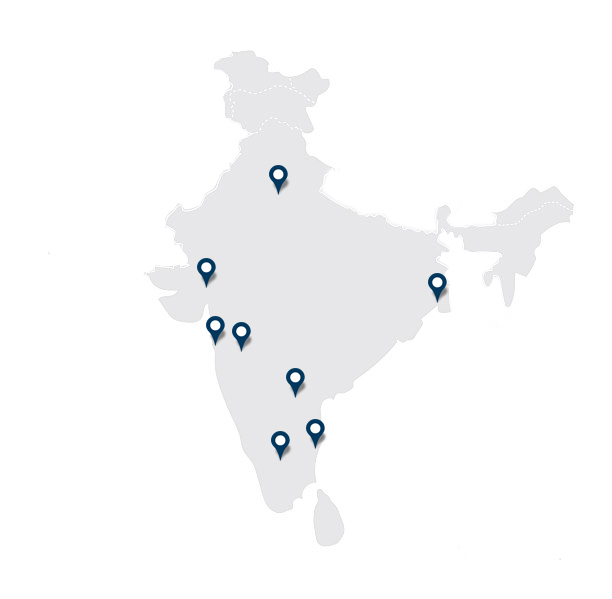What is a Student Visa?
For international students, pursuing higher education abroad is a ground breaking experience—one that begins with securing a student visa. But what is a student visa, and why is it so crucial?
A student visa is an official authorisation granted by a foreign government, permitting individuals to reside and study within its borders for a specified duration. It serves as both a legal requirement and an enabler of academic aspirations, ensuring compliance with immigration policies while opening doors to world-class education. Whether you plan to study in the UK’s renowned institutions, Ireland’s innovation-led universities, or Dubai’s rapidly growing academic landscape, this document is indispensable.
Beyond mere permission to enter, a student visa often includes provisions such as part-time work allowances, access to healthcare and in some cases, pathways to post-study employment. Without it, even an acceptance letter from a prestigious university holds little weight at immigration checkpoints.
Traversing the world of student visas and their regulatory framework is essential for anyone planning to study overseas. Missteps during the application can cause frustrating delays, disappointing rejections, or problematic issues down the road. This comprehensive guide will act as your compass through the visa maze, endowing you with peace of mind and assurance as you step into your international academic adventure.
Types of Student Visas
1. UK Student Visa (Student Route Visa)
The UK’s Student Route Visa (introduced in 2020) replaced the older Tier 4 system, creating a more streamlined application process for international students.
Key Requirements
- CAS (Confirmation of Acceptance for Studies): A unique reference number issued by your UK university (must be from a licensed Tier 4 sponsor).
- Financial Proof
- Outside London: £1,136 per month (for up to 9 months).
- Inside London: £1,334 per month (for up to 9 months).
- Funds must be held for at least 28 consecutive days before applying.
- English Language Proficiency: CEFR B2 level (IELTS 5.5–6.5 or equivalent).
Work & Post-Study Benefits
- Part-Time Work: Up to 20 hours per week during term time, full-time during holidays.
- Graduate Route Visa: Eligible for 2 years (undergrad/master’s) of post-study work.
2. Ireland Stamp 2 Visa
Ireland’s Stamp 2 Visa is for full-time international students enrolled in degree programmes.
Key Requirements
- Letter of Acceptance: From an accredited Irish institution (must be on the ILEP list).
- Financial Proof
- Single applicant: Minimum €10,000 in an Irish bank account (blocked funds).
- Additional €7,000 required if bringing dependents.
- Medical Insurance: Mandatory coverage of at least €25,000 for non-EU students.
Work & Post-Study Benefits
- Part-Time Work: 20 hours per week during term, 40 hours per week in summer (June–September).
- Stamp 1G Visa: 1–2 years of post-study work eligibility.
3. Dubai Student Visa
The UAE Student Visa is sponsorship-based, meaning your university applies for it on your behalf.
Key Requirements
- University Sponsorship: Must be from an accredited UAE institution (e.g., UAEU, NYU Abu Dhabi).
- Medical Test: Mandatory for visas longer than 1 year (conducted in the UAE).
- Financial Proof: Varies by university (some require a security deposit).
- Accommodation Proof: University hostel or rental agreement.
Work & Post-Study Benefits
- Part-Time Work: Up to 15 hours/week, but requires approval from both the university and employer.
- Post-Study Options: Must secure a job offer to transition to a work visa.
Understanding what a student visa in your chosen destination ensures you meet the right criteria from day one.
How to Apply for a Student Visa
The process of figuring out student visa eligibility and application procedures can be daunting at first glance. With a methodical approach focused on discrete steps, you can tackle the process with confidence. Here’s your roadmap:
Step 1: Secure Your Admission
- Obtain an unconditional offer letter from a recognised institution.
- For the UK, receive your CAS (Confirmation of Acceptance for Studies) number.
- For Ireland, ensure your university is on the ILEP (Interim List of Eligible Programmes).
Step 2: Check Visa Type & Eligibility
- Confirm the correct visa category (e.g., UK Student Route, Ireland Stamp 2).
- Verify financial requirements:
- UK: £1,023–£1,334/month (depending on location).
- Ireland: €10,000 in a blocked account.
Step 3: Gather Required Documents
- Core Documents
- Valid passport (minimum 6 months validity).
- Proof of funds (bank statements, scholarships).
- Academic transcripts and English test results (IELTS/TOEFL).
- Country-Specific Addition
- UK: TB test results (if applicable).
- Ireland: Medical insurance (minimum €25,000 coverage).
Step 4: Submit Your Online Application
- Complete the form on the official immigration portal (e.g., UKVI for the UK).
- Pay the visa fee (varies by country) and the Immigration Health Surcharge (IHS) for the UK.
Step 5: Attend Biometrics & Interview (If Required)
- Book a visa appointment at a VAC (Visa Application Centre).
- Prepare for potential credibility interviews (UK/IRL):
- Sample question: “Why did you choose this university over others?”
Step 6: Track & Receive Your Decision
- Processing TimeUK:
- 3 weeks (standard), 5 days (priority).
- Ireland: 4–8 weeks.
Securing your student visa isn’t just paperwork – it’s your ticket to an international education. While the process might seem complex, understanding what is a student visa procedure thoroughly helps you avoid costly mistakes that could delay your studies.
Student Visa Application Tips
Your student visa application demands more than just completed forms – it requires strategic planning. But breaking the process into manageable steps transforms anxiety into confidence. Here’s exactly what you need to focus on for a winning application:
1. Start Early
- Ideal timeline: Begin 3–4 months before your course starts.
- Why? Delays happen—CAS issuance, financial proof processing, or appointment slots filling up.
- Pro tip: Set reminders for key deadlines (e.g., UKVI’s 28-day fund rule).
2. Organise Documents
- Use a Checklist: Separate into categories:
- Mandatory: Passport, CAS/offer letter, financial proofs.
- Supplementary: SOP, academic transcripts, test scores.
- Digital Backups: Scan all documents (colour copies preferred).
3. Financial Proof
- UK/Ireland: Funds must be in your account for 28+ consecutive days before applying.
- Dubai: Some universities require a security deposit, so confirm the exact amounts.
- Avoid: Sudden large deposits (can raise red flags).
4. Prepare for the Interview (If Applicable)
- UK credibility interviews: Practice answering:
- Why this university?”
- “How does this course align with your goals?”
- Dubai/Ireland: Focus on demonstrating genuine study intent.
5. Seek Expert Help When Required
- Consultancies: Use them for document reviews or mock interviews.
- University Support: Many have dedicated visa advisory teams.
6. Double-Check Before Submitting
- Common Errors: Incorrect passport-sized photos, unsigned forms and outdated bank statements.
Comprehending what is a student visa process is half the battle—the other half is execution. Miss one detail and you risk delays or rejections. But with meticulous planning, you’ll cross the finish line smoothly.
Conclusion
- Accuracy matters: Even minor documentation errors can lead to delays
- Country-specific knowledge is essential: Financial proofs and processing times vary significantly
- Preparation pays off: Interview readiness strengthens your credibility
Frequently Asked Questions
To secure a student visa, you’ll typically need:
- An unconditional offer from a recognised institution (e.g., CAS for the UK, I-20 for the US)
- Proof of sufficient funds (e.g., UK: £1,023–£1,334/month; Ireland: €10,000 in a blocked account)
- Valid passport (with 6+ months' validity)
- English proficiency test scores (e.g., IELTS, TOEFL)
- Health insurance (mandatory for Ireland/Dubai)
- Additional documents like TB test results (UK) or medical fitness certificates (Dubai).
Yes, but with restrictions:
- UK: 20 hours/week during term; full-time in vacations.
- Ireland: 20 hours/week (term); 40 hours (June–September).
- Dubai: Only with university/employer approval (max 15 hours/week).
- Post-study work: The UK offers a Graduate Route (2–3 years); Ireland provides Stamp 1G.
- UK: Matches your course duration + extra months (e.g., 4 months post-graduation for Master’s).
- Ireland: Aligns with your programme length (renewable annually).
- Dubai: Typically 1 year (renewable through university sponsorship).
- Review the refusal letter for exact reasons (e.g., insufficient funds, missing documents).
- Reapply: Address the issues (e.g., submit stronger financial proof).
- Appeal: Possible in some countries (UK/Ireland) within strict timelines.
- Consult experts: Visa advisors (like Fateh Education) can identify and fix application gaps.


